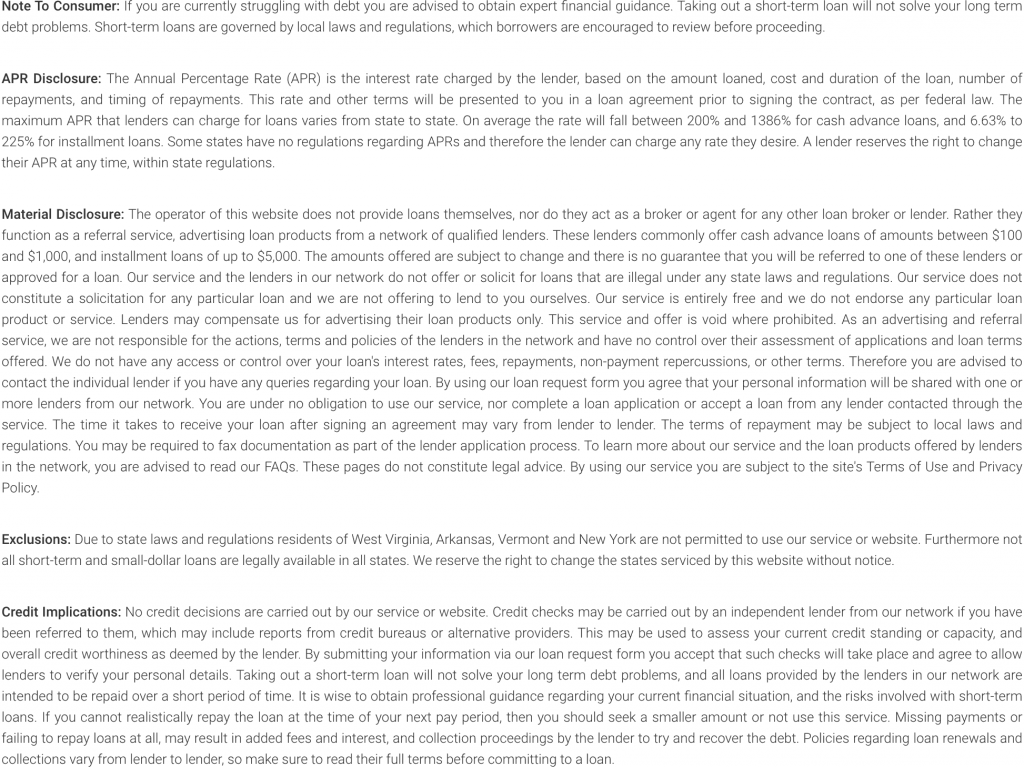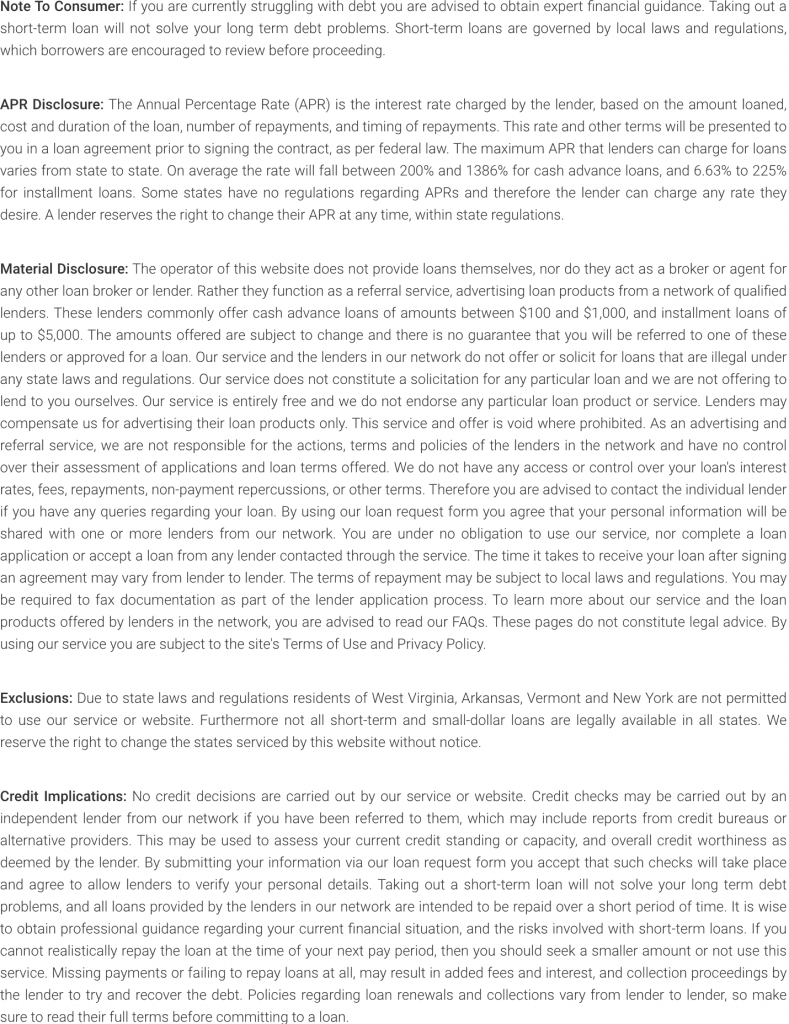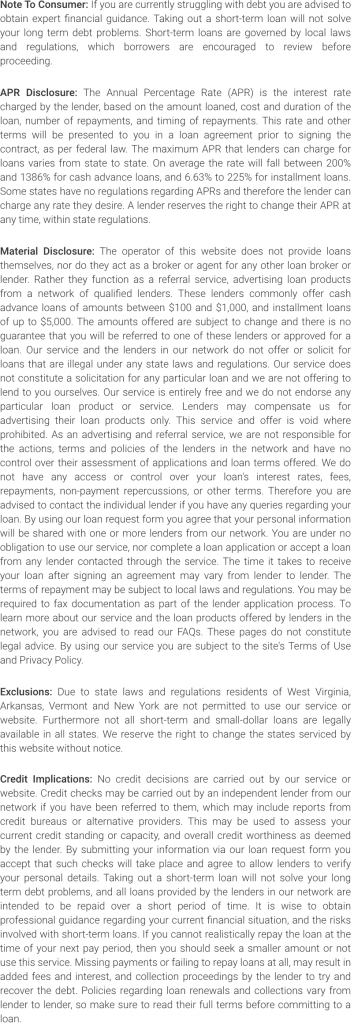- Get emergency cash to solve your problems FAST
- All credits accepted. Bad credit may not be a problem
- Super fast approval. Get decision within minutes
- $100 - $1000 loans for any reason
- 256-Bit SSL protected loan request form
Tips: How To Become Better At Saving
 We all know that we need to spend less in order to save money, but that’s often easier said than done. If you find yourself struggling one of the best solutions is to start a weekly or monthly budget. This will give you complete insight and control of the money coming in and going out, and where you can start cutting costs.
We all know that we need to spend less in order to save money, but that’s often easier said than done. If you find yourself struggling one of the best solutions is to start a weekly or monthly budget. This will give you complete insight and control of the money coming in and going out, and where you can start cutting costs.
This doesn’t have to be fancy, you can use a notepad, your phone, or a basic spreadsheet on the computer. Either from your head or as you go through the days, note down what you spend and what you make in separate columns, and then calculate the difference.
Hopefully this is in the positive (or you have a problem). The trick now is to increase the positive by deciding where you can make cuts. Perhaps you’re spending too much on takeouts or restaurants? Or maybe certain shopping brands can be replaced by cheaper alternatives?
The rule of thumb is that you should be able to get by saving 20% of your monthly income.
While this might seem like a large figure, especially if you’re on a low income anyway, the consequences of not saving can be dire. What happens if there is an emergency, an unforeseen bill, or you simply have no funds to socialize? Saving is important regardless of your income level.
Let’s take a closer look at some of the things you can do to become a better saver:
Stop Procrastinating
Procrastination is the number one killer of all new lifestyle changes. You might think about saving, but unless you actually start you’re just wasting time… and money!
Even if you’re daunted or struggling to do a budget, anyone can find something they can cut out of their expenditure. Do it, and the everything else will start falling in to place.
One Step at a Time
The opposite of the procrastination problem is going in head strong and overdoing it. If you’re going to make a successful budget that you can stick to – be realistic. Can you really do without your Twinkies or Netflix subscription? Perhaps for a few months, but then you’ll crack, buy them again, feel like a failure and forget about saving altogether. Even if you can only realistically save $20 a month, that’s better than nothing.
Take it one step at a time. Once you get the hang of your budget then you can think about deeper savings and more extreme cuts.
Keep It Simple
Income in and income out, that’s literally all you need to worry about with your budget. If you don’t have the ability or discipline to apply complex accountant equations to your 10 page spreadsheet, then don’t do it.
Use A Savings Account
An obvious way to help with your savings is to open a savings account with the bank. The most basic of these accounts can be opened online and have no limits on deposits, withdrawals, or transfers. You simply get a slightly better interest rate than a regular checking account. You could even have your wages paid directly in to this account so you’re always in saver mode.
If you’ve been successfully budgeting for a few months you may then want to consider opening a stricter savings account that requires a certain amount of deposits and for the money to stay in there for a certain amount of time. This will allow you to get a better interest rate and compound your savings.
If you have a keen eye some accounts will even pay you a bonus for singing up or meeting certain requirements. Who doesn’t like free money? Comparison sites will hep you find these.
Set Goals
Visualizing and intent are not just some new age hippy concept. Psychology confirms that if you write down your goals and regularly overview and think about them, you are more likely to meet them. So if you’re saving for a vacation, write down the sum you need, allocate it in to your budget, and stick to it!
Take Care of Change
Some people are generous and allow cashiers to “keep the change.” others waste it on impulse buys like candy. The smart option is to put it in a change jar. Once this builds up, you can count it in to bags and deposit it at the bank. You’ll be shocked at how much you’ll have at the end of the year. Just don’t forget the jar is there!
Don’t Splurge Bonuses
Maybe you get a bonus at work, a tax rebate, cash gift, or perhaps you like to play the roulette table on vacation. But whatever extra a cash you get, try not to think of it as fun money, rather put it straight in to your savings account and proceed as usual. If this is just too heartbreaking, why not just put half aside?
Stop Impulse Buys
It’s ok to buy things you like, that’s part of what saving is for. However if you’re prone to impulse buying, you may want to employ the 72 hour rule. This states that if you get the urge to buy something, wait 72 hours and then reconsider. You might find that the urge has vanished and therefore you haven’t wasted your money. You might also consider blocking shopping sites or channels if you have a particular problem.



